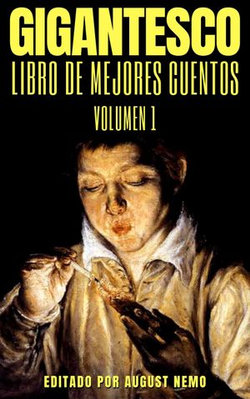Este libro contiene 350 cuentos de 50 autores clásicos, premiados y notables. Elegida sabiamente por el crítico literario August Nemo para la serie de libros 7 Mejores Cuentos, esta antología contiene los cuentos de los siguientes escritores: Abraham Valdelomar Antón Chéjov Antonio de Trueba Arturo Reyes Baldomero Lillo César Vallejo Charles Perrault Edgar Allan Poe Emilia Pardo Bazán Fray Mocho Gustavo Adolfo Bécquer Horacio Quiroga Joaquín Díaz Garcés Joaquín Dicenta José Martí José Ortega Munilla Juan Valera Julia de Asensi Leonid Andréiev Leopoldo Alas Leopoldo Lugones Oscar Wilde Ricardo Güiraldes Roberto Arlt Roberto Payró Rubén Darío Soledad Acosta de Samper Teodoro Baró Vicente Blasco Ibáñez Washington Irving Alfred de Musset Marqués de Sade Saki Marcel Schwob Iván Turguéniev Julio Verne Émile Zola Villiers de L'Isle Adam Mark Twain León Tolstoi Ryunosuke Akutagawa Ambrose Bierce Mijaíl Bulgákov Lewis Carroll Arthur Conan Doyle James Joyce Franz Kafka H. P. Lovecraft Machado de Assis Guy de Maupassant



Share This eBook: